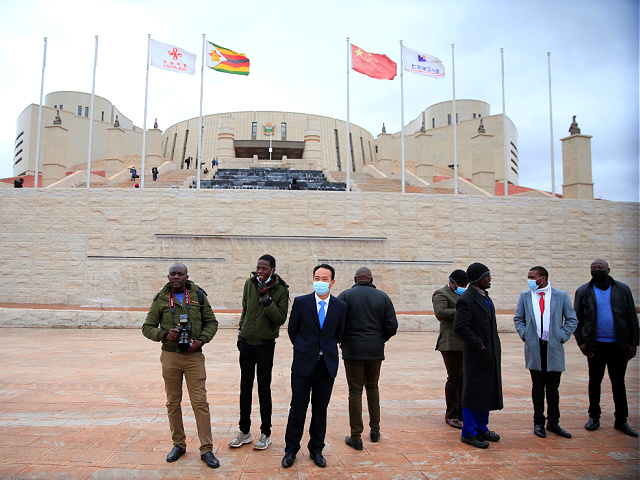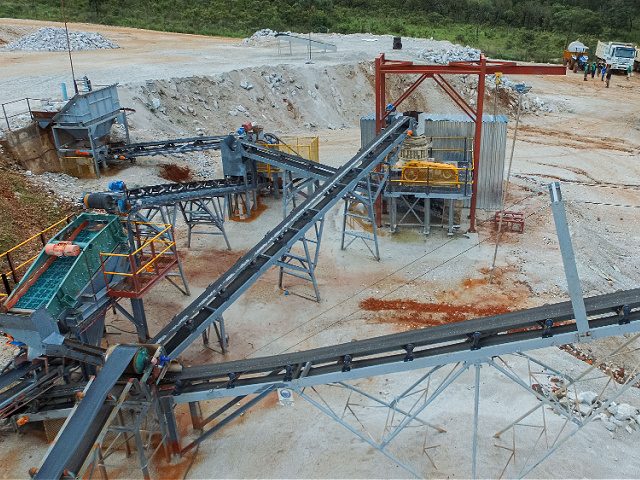A Chinese company recently secured a contract with a Zimbabwean lithium mine to export the metal, which is vital to the manufacture of batteries used in electric vehicles (EVs), to China starting in 2023, Deutsche Welle (DW) reported Monday.
The China-based Suzhou TA&A Ultra Clean Technology Co. beat out nearly a dozen competitors from other regions including Europe and Australia to secure its lithium export contract with Zimbabwe’s Zulu Lithium Mines, which is a subsidiary of Premier African Minerals, DW reported on July 11.
Zulu Lithium Mines’s chief executive, George Roach, told Reuters on Monday that the firm chose to do business with Suzhou TA&A Ultra Clean Technology Co. “from a swarm of Chinese, European and Australian investors.”
“At one point, I was involved with 11 separate negotiations with people all wanting Zulu!” Roach said, adding, “It was a very intense period.”
Premier African Minerals plans to start shipping a lithium-containing rock called spodumene concentrate from its Zimbabwean mine to China by the end of March 2023, according to the newly signed contract.
Suzhou has agreed to inject $35 million into the construction of a high-capacity pilot plant at Zulu Lithium Mines, according to Roach. The estimated output from such a plant “would be nearly 50,000 tonnes of spodumene concentrate annually,” Reuters noted.
The news agency further detailed the metal deal on Monday, writing:
Construction can start immediately thanks to the funding, Roach said, with an aim to ship by March 31 2023 and ramp up production to around 48,000 tonnes of spodumene concentrate a year.
In March, Suzhou became a 13.38% shareholder in Premier [African Minerals] through a private placement in which it injected 12 million pounds ($14.37 million) into the company, securing spodumene concentrate supply for Yibin Tianyi, China’s leading lithium chemicals producer, which Suzhou jointly owns with CATL, the world’s largest electric vehicle battery maker.

People interact in front of Zimbabwe’s new parliament building on Mount Hampden Hill, Zimbabwe, on June 29, 2022. Zimbabwe’s new parliament building, constructed and fully funded by China as a gift to the southern African country, is now complete and ready for occupation. (Photo by Shaun Jusa/Xinhua via Getty Images)
Reuters describes Suzhou TA&A Ultra Clean Technology Co. as “principally engaged in the research, development, production and sale of anti-static ultra-clean products.” The news agency describes Premier African Minerals, the parent company of Zulu Lithium Mines, as a “multi-commodity mining and natural resource development company.”
Lithium is a metal used to manufacture electric batteries. The growing popularity of electric vehicles (EVs), which run on lithium batteries, has caused the metal to become a hot commodity in recent years.
“In a move similar Suzhou’s [sic], China’s Zhejiang Huayou Cobalt last month announced plans to invest $300 million in a hard-rock lithium mine just outside of Zimbabwe’s capital,” DW reported on July 11.
Beijing has an established connection with Zimbabwe through its Belt and Road Initiative (BRI). The program sees China’s government fund infrastructure projects in developing or lower-income nations, often through dubious loan structures that threaten to push participants further into debt to Beijing.
Decades of economic mismanagement and corruption by Zimbabwe’s socialist government have caused the nation to become one of the poorest in the world. The United Nations estimated in 2019 that Zimbabwe was “on the brink of man-made starvation, with 60% of the population now considered food-insecure.” The southern African nation’s recent lithium export prospects would provide Zimbabwe’s economy with a much-needed boost, though China’s past BRI projects have often failed to produce economic growth locally as promised by Beijing.

COMMENTS
Please let us know if you're having issues with commenting.